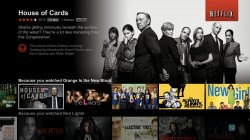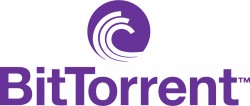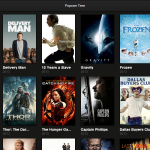A rather shortened WNR since I was up pretty late last night/pretty early today watching, cringing, suffering and celebrating Arsenal winning the FA Cup for the 11th time in the club’s glorious history. Bloody Arsenal, they never do things the easy way!
Let’s get started before I fall asleep.
![]()
Having just binged watched through all six seasons of Lost, currently in the middle of an epic It’s Always Sunny in Philadelphia marathon, while also re-watching the first season of Orange is the New Black in preparation for season 2, I can totally see how it is possible to use 212 GB of data every month for Netflix. That’s how much is being used, on average, by the top 15% of streamers according to a new report which also says Netflix usage during peak times now accounts for 34% of all Internet traffic.
The same report also found the file sharing traffic during the same peak hours has dropped to 8.3%, down from the high of 31% in 2008. Looks like Netflix is single-handedly winning the war against piracy, by giving people what they want.
Let’s just hope people will still want it after the price rise. Netflix has decided to raise prices from the ubiquitous and industry defining $7.99 per month, to $8.99. But only for new subscribers – existing subscribers will be able to keep their current rates for another 2 years. Netflix says the higher price is to account for new content, but their recent peering agreements with top ISPs must have also played a role in determine the new price.
So is Netflix worth $8.99? I think so, and Netflix will hope others do too.
![]()
It looks like Microsoft has heeded the same advice I handed out right here a couple of weeks ago – Kinect has been separated from the Xbox One, which means the price of Microsoft’s beleaguered (not really, but I just wanted to use the word ‘beleaguered’) console has now achieved parity with the PS4 thanks to a a new $399 package that will not come with Kinect.

Kinect (the boxy thing below the TV on the photo above) is no longer an “essential” part of the Xbox One
This is the second major u-turn by the Redmond based firm for the Xbox One – the first, if you can remember (of course you can!) related to the removal of ‘always-on’ DRM. This latest reversal removes the one last bit of strategic difference between the two major consoles.
It’s a shame really, because I can see what Microsoft were trying to achieve. Being different in a crowded and competitive marketplace is always risky, and you have to commend Microsoft for trying to do things differently, even if what they were trying to do was not what gamers wanted. The whole DRM things came from overestimating the tolerance of gamers to this kind of stuff, and while I still maintain that being able to play games without using discs is a great idea, Microsoft’s implementation left a lot to be desires.
The same with Kinect. It’s an innovative solution, that was kind of staggering around looking for a problem. You didn’t really need it, and to force gamers to buy it at a $100 premium was a bad idea. If the Xbox One launch titles had at least one great title that made the Kinect an essential accessory, things might have been different, but the reality is that it falls into the “nice to have, but not essential” category at the moment.
So what will Microsoft’s price drop do for the console? Even at the same price as the PS4, the Xbox One will still be playing catch up. This is due to the general perception is that the PS4 is a more powerful and future-proof console. It doesn’t even matter if this perception is true or not, but it will play on the minds of potential buyers. So for me, the Xbox One has to be cheaper than the PS4 in order to compete, and without Kinect being bundled with every console, Microsoft may have room to do exactly this. There are still a lot of people playing Xbox 360s that have yet to decide which next-gen console they want, and so it’s still not too late for Microsoft to regain dominance in the key U.S. market.
And this brings us nicely to the April NPD results, in which the PS4 was again the top selling console in the U.S. The Xbox One managed to ship 115,000 units in second place, which would make it the a slower April than any April for the Xbox 360, except for the current one (the Xbox 360 only managed to sell 71,000 units).
No word on Wii U numbers yet at the time of going to press (by press, I don’t mean the printing press, but just the press of the big “Publish” button in WordPress), so I will post an update if/when more numbers come in.
This is all I can muster for now, as I have to go and rest my eyes, before very likely re-watch parts of the FA Cup final relive (this time without nearly having a heart attack). See you next week!









